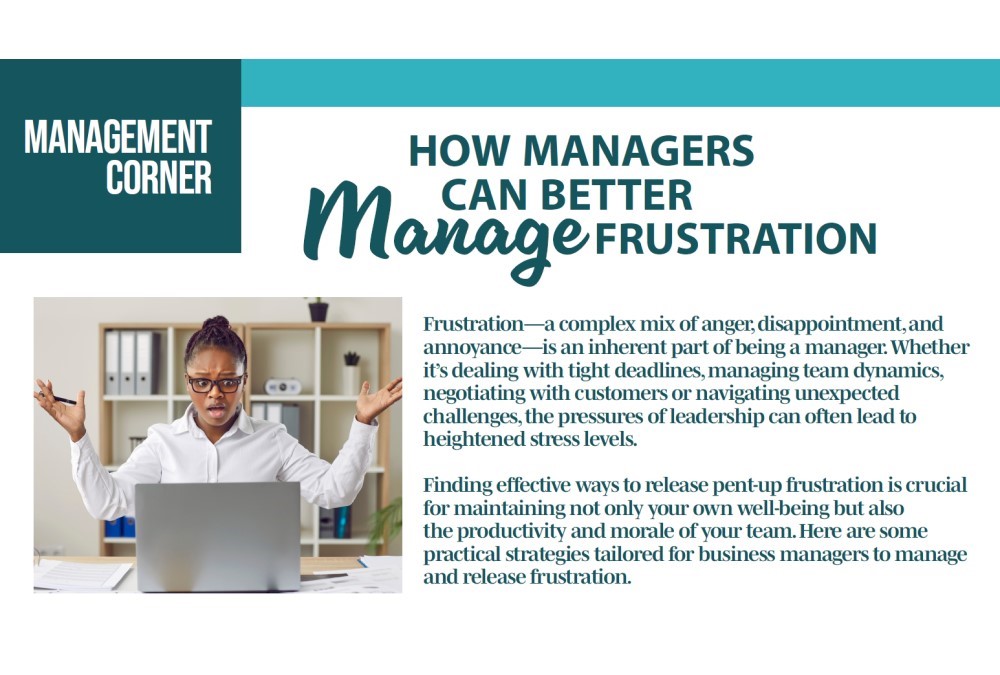
5 Ways to Use Deck Colors and Patterns to Differentiate Outdoor Living Space Designs
September 26, 2024
Top of the Chain with Jac Whitmire
September 26, 2024How Managers can Better Manage Frustration
Frustration—a complex mix of anger, disappointment, and annoyance—is an inherent part of being a manager. Whether it’s dealing with tight deadlines, managing team dynamics, negotiating with customers or navigating unexpected challenges, the pressures of leadership can often lead to heightened stress levels.
Finding effective ways to release pent-up frustration is crucial for maintaining not only your own well-being but also the productivity and morale of your team. Here are some practical strategies tailored for business managers to manage and release frustration.

Breathing Exercises. When you’re facing a stressful situation, your breathing may become rapid and shallow, exacerbating your frustration. Regulating your breath can help you regain composure and clarity. Try this technique: inhale deeply for 5-6 seconds, pause, then exhale slowly for 6-7 seconds. This simple exercise can increase oxygen flow to your brain, promoting calmness and better decision-making.
Physical Activity. Physical activity is a powerful tool for managing stress and frustration. Engaging in regular exercise can help you release built-up tension and improve your mood, making it easier to tackle your work challenges with a clear mind. It’s essential to carve out time for physical activity, whether it’s a quick run, a workout session at the gym, or even a brisk walk around your office building. Exercise not only boosts your energy but also helps you approach problems with renewed focus and creativity, ultimately benefiting your leadership and decision-making skills.
Constructive Venting. It’s important to find appropriate outlets for venting your frustrations. Holding onto negative emotions can cloud your judgment and affect your interactions with your team. Take time to speak with a trusted colleague or mentor about your frustrations—this can be a healthy way to process and release tension. However, it’s crucial to keep these conversations brief and solution-oriented. If you prefer a more private approach, journaling can be an effective method for organizing your thoughts and gaining perspective on the situation.
Productive Distractions. Sometimes, stepping away from a problem is the best way to manage your frustration. Engaging in a focused activity that takes your mind off work, such as reading, solving puzzles, walking your dog or spending time with family, can help you reset. This brief mental break allows you to return to your tasks with a fresh outlook, improving your ability to manage complex situations. Additionally, enjoying your favorite entertainment—whether it’s music, a movie, or another hobby—can provide a much-needed escape, allowing you to return to your management role with renewed energy.
As a manager and leader of a team, managing frustration effectively is key to maintaining a positive work environment and achieving long-term success. Try incorporating these strategies into your daily routine to help keep your emotions in check, improve your decision-making abilities, and enhance your ability to lead your team with confidence and resilience.




